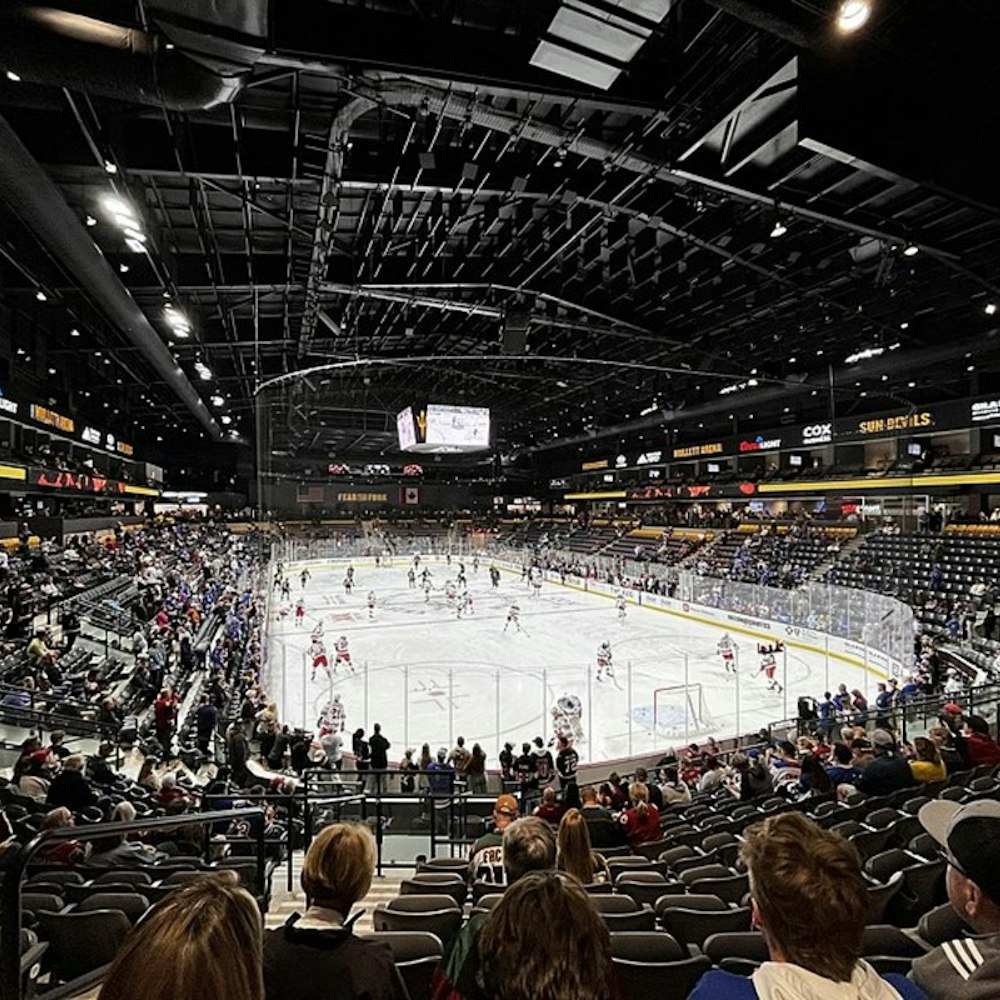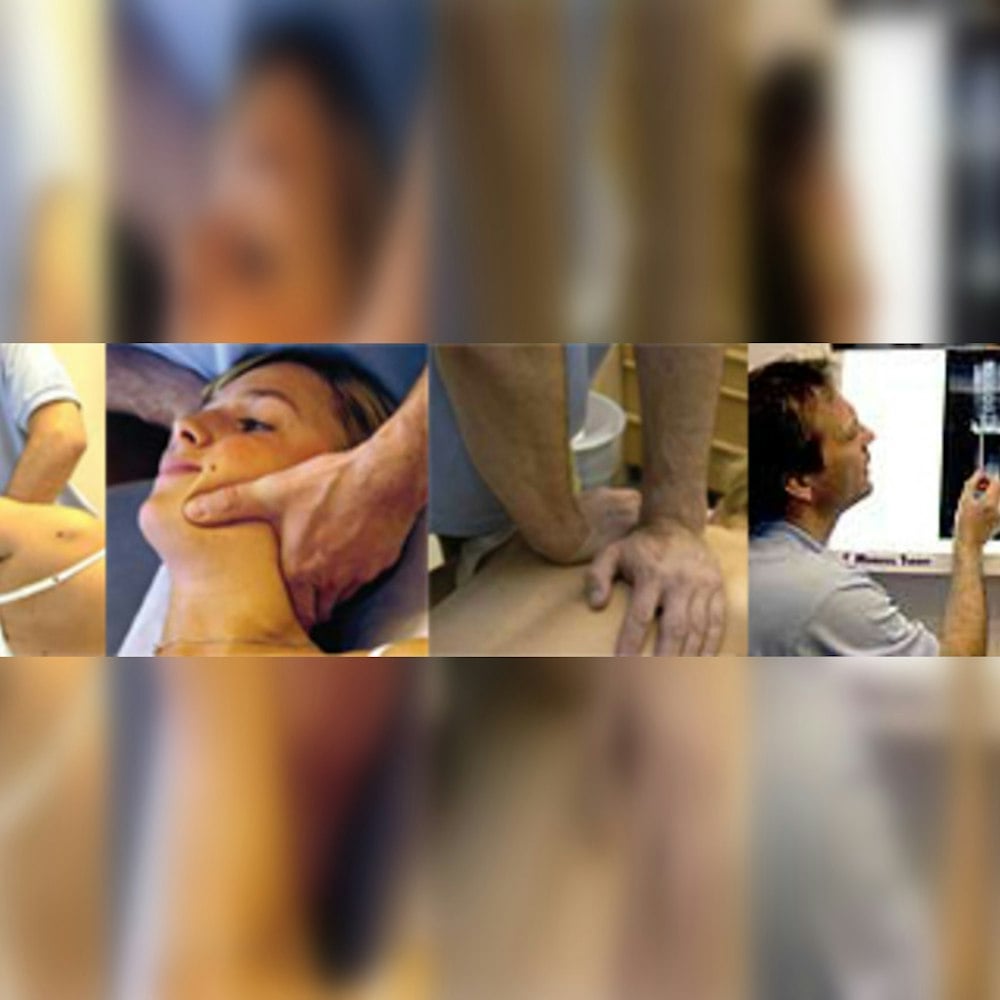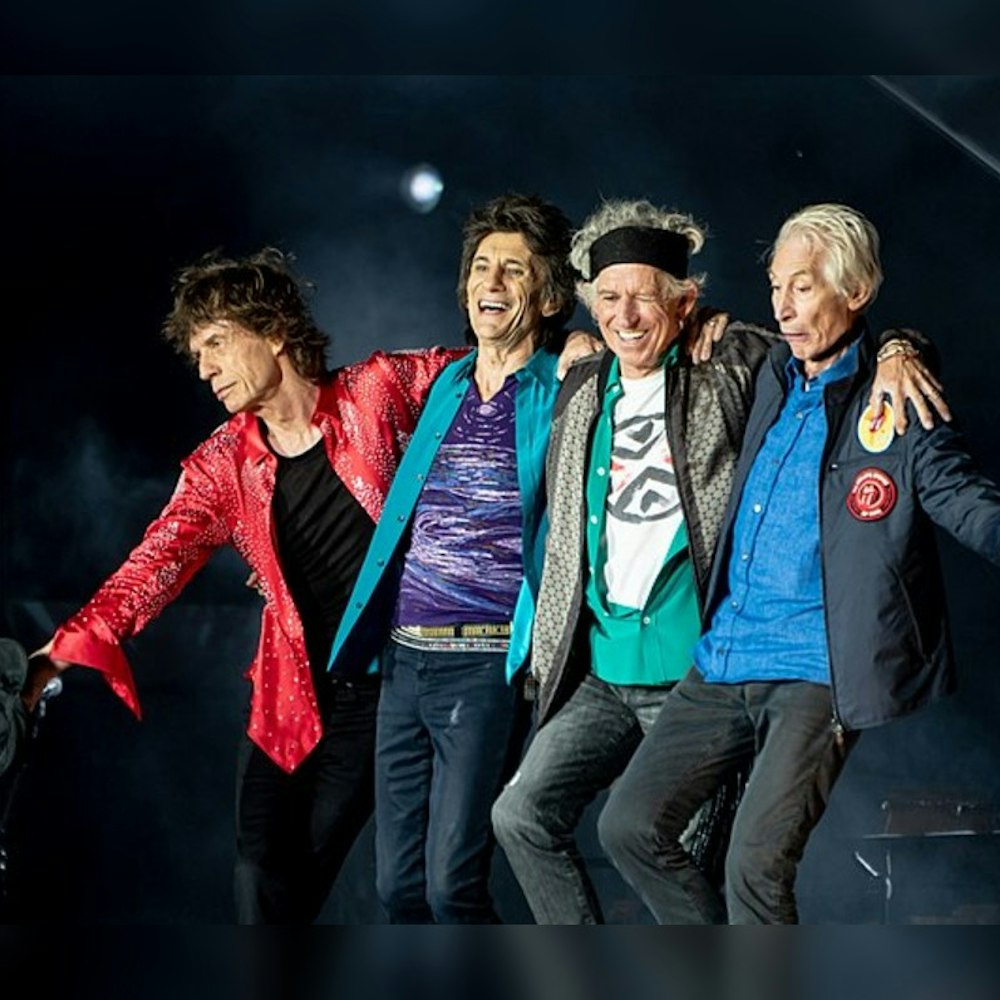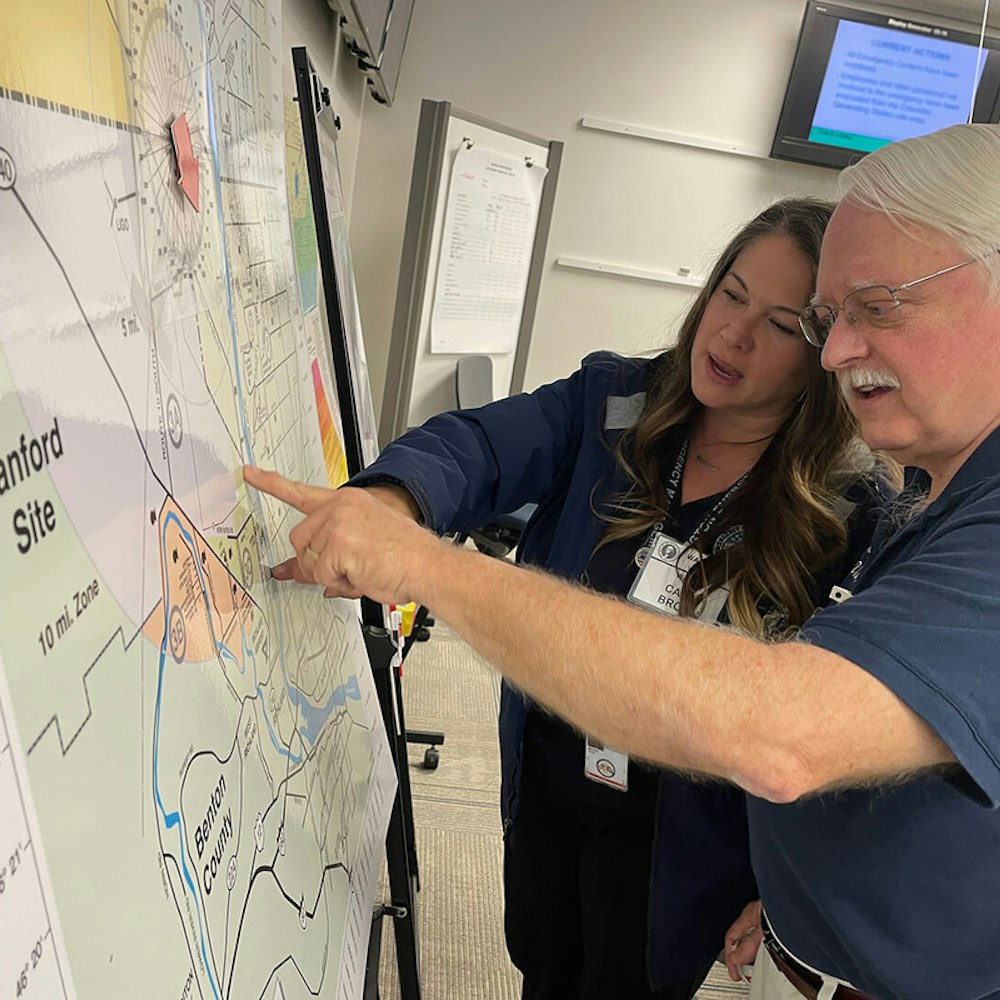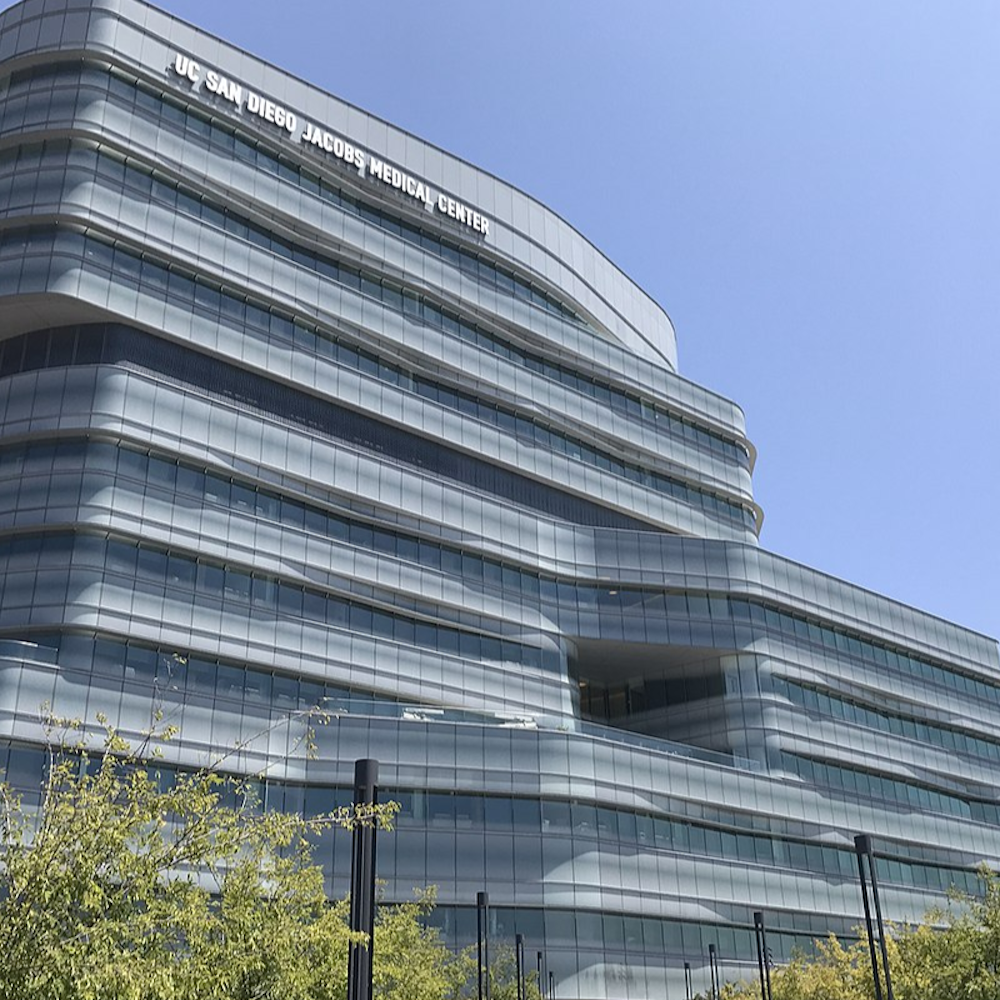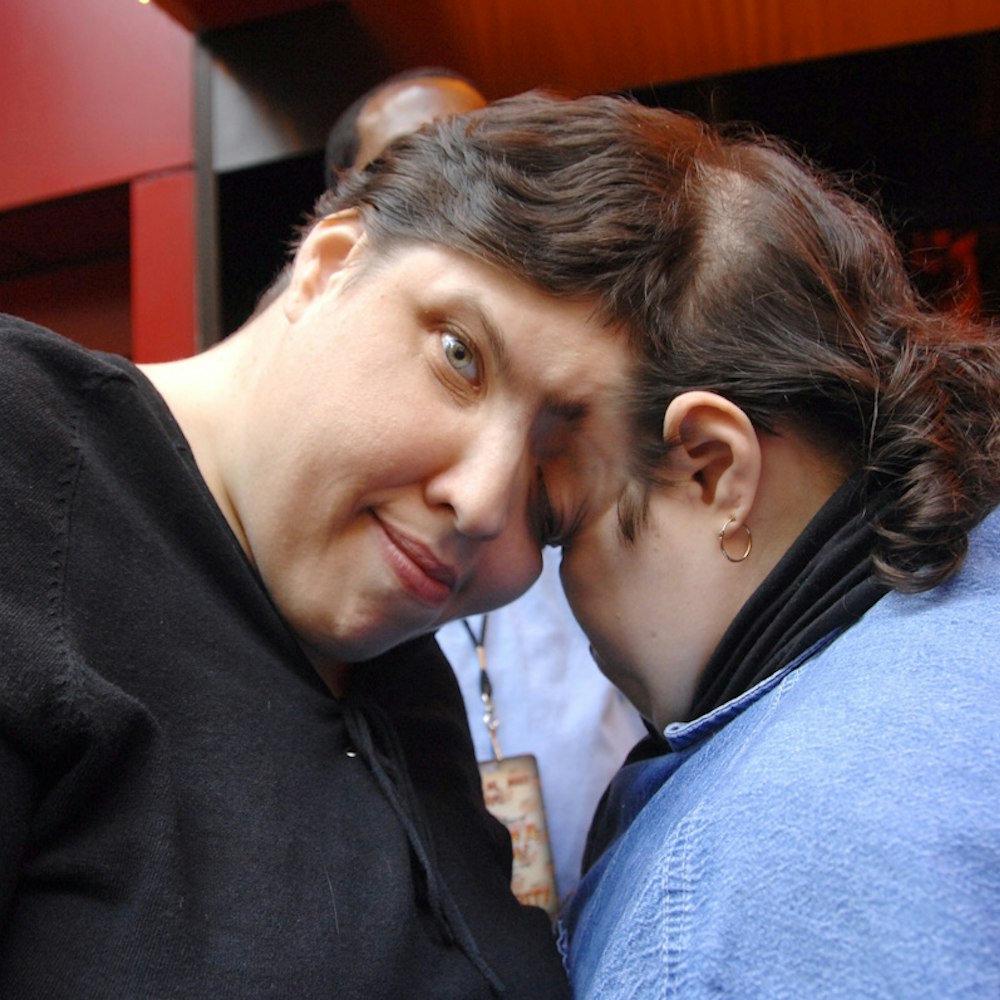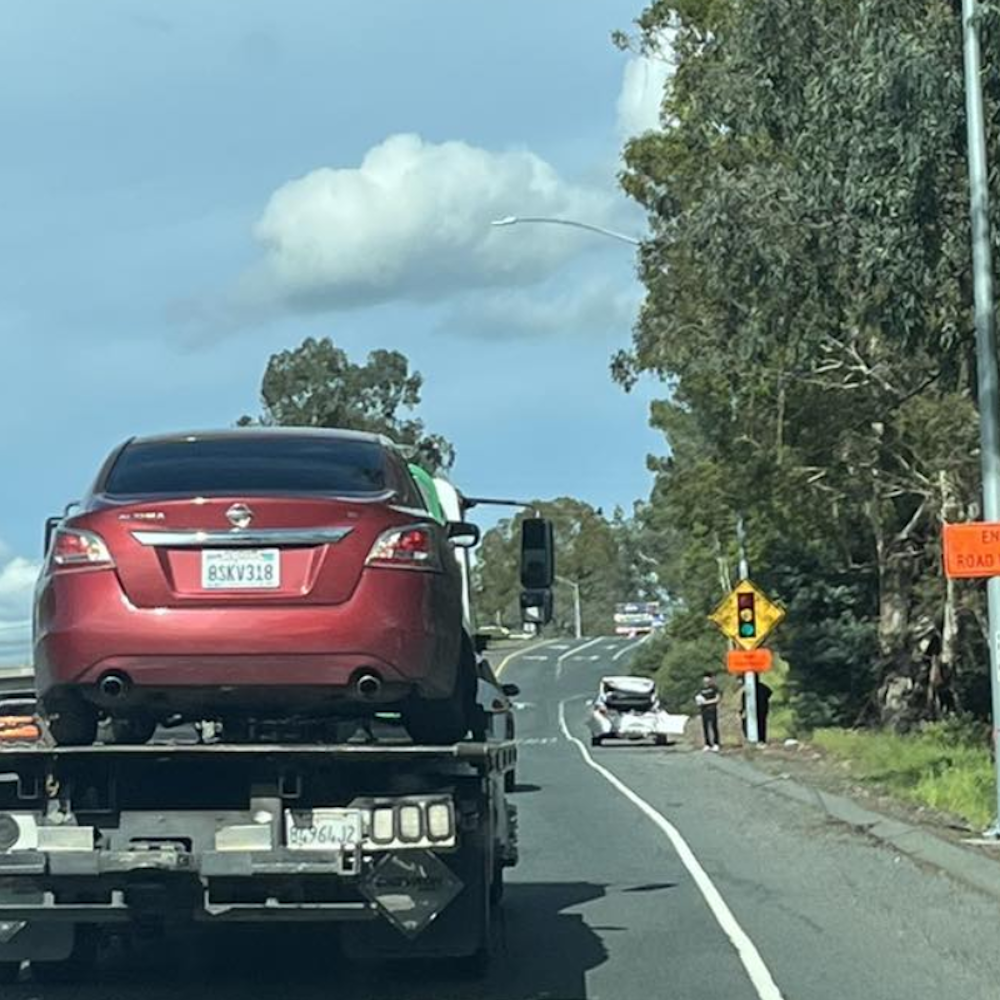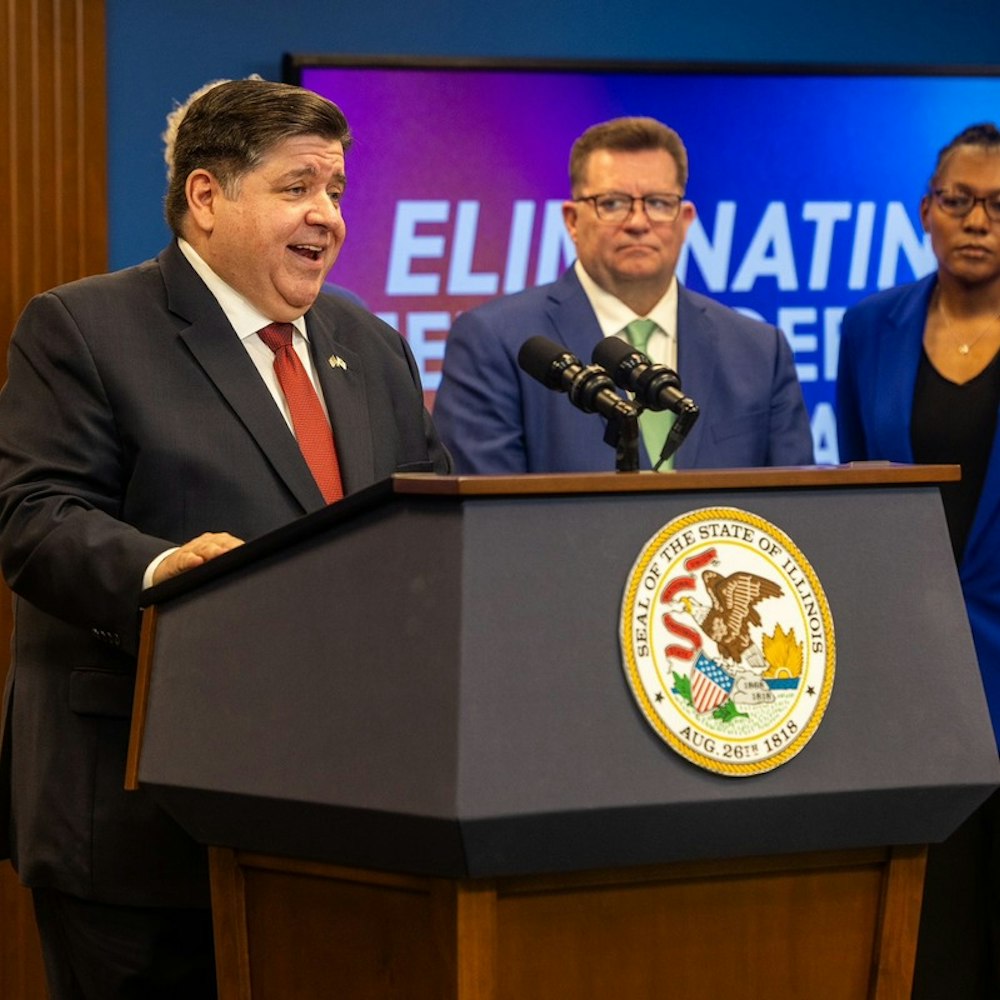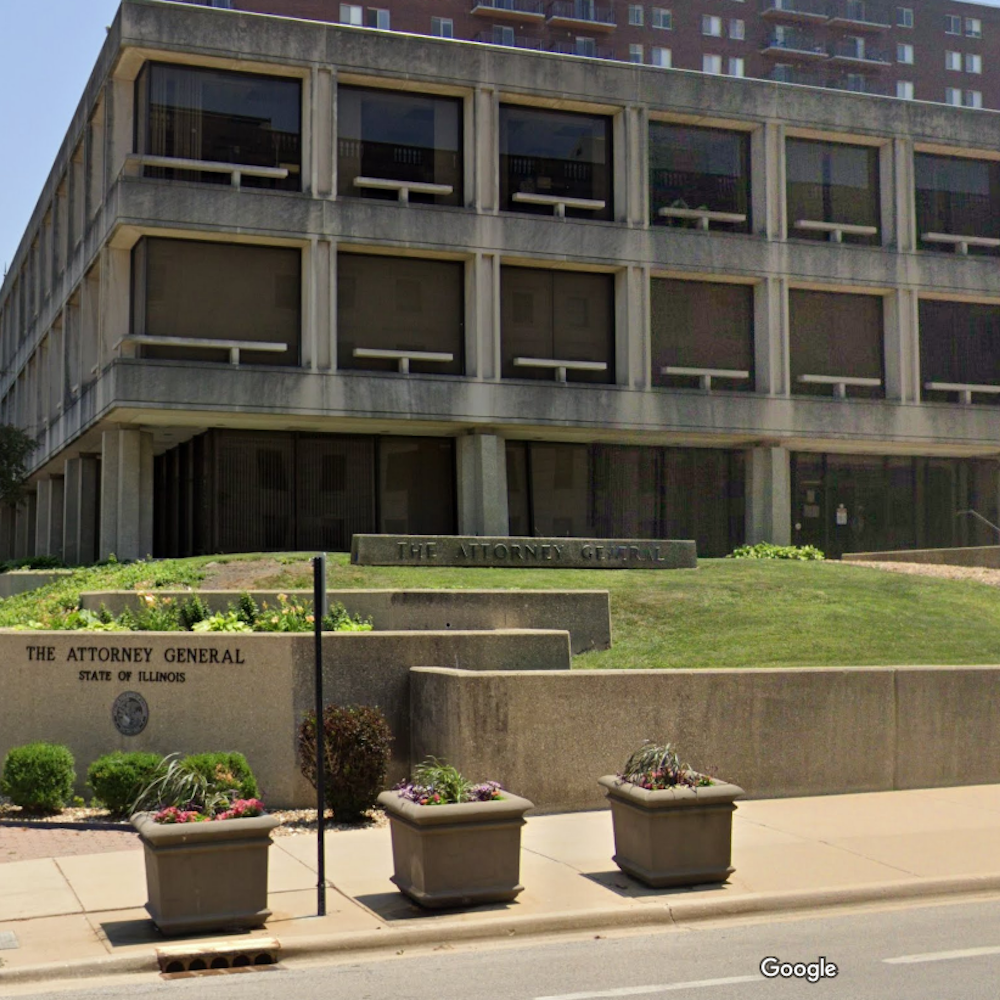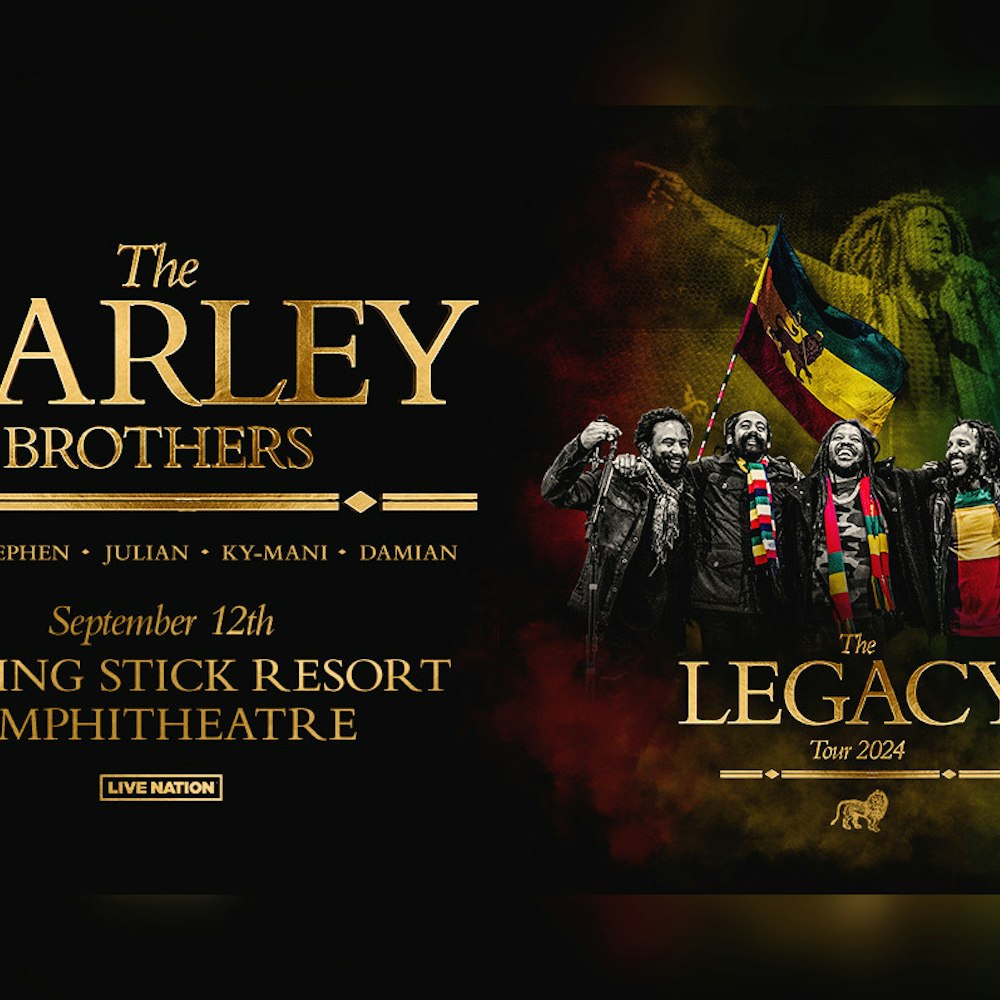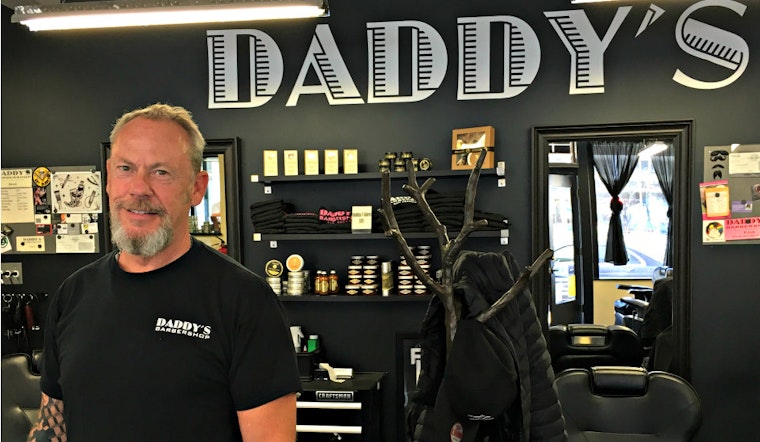
Each week during the month of July, we’ll plug into the Castro’s barbershop talk by touching base with a neighborhood hair salon. Stay tuned as we share what’s going on in residents' heads—by connecting with the people that wash, trim, and style the hair on top of them.
Owning a barbershop was never really in the cards for Arlen Lasater, especially one called Daddy’s. Yet, for the past six years, Lasater has grown Daddy’s Barbershop into one of the most recognizable Castro establishments in the country: every year, hundreds of locals and tourists stop by Daddy’s Barbershop to snap pictures, get a taste of the Folsom Street Fair, and, well, get their hair cut.
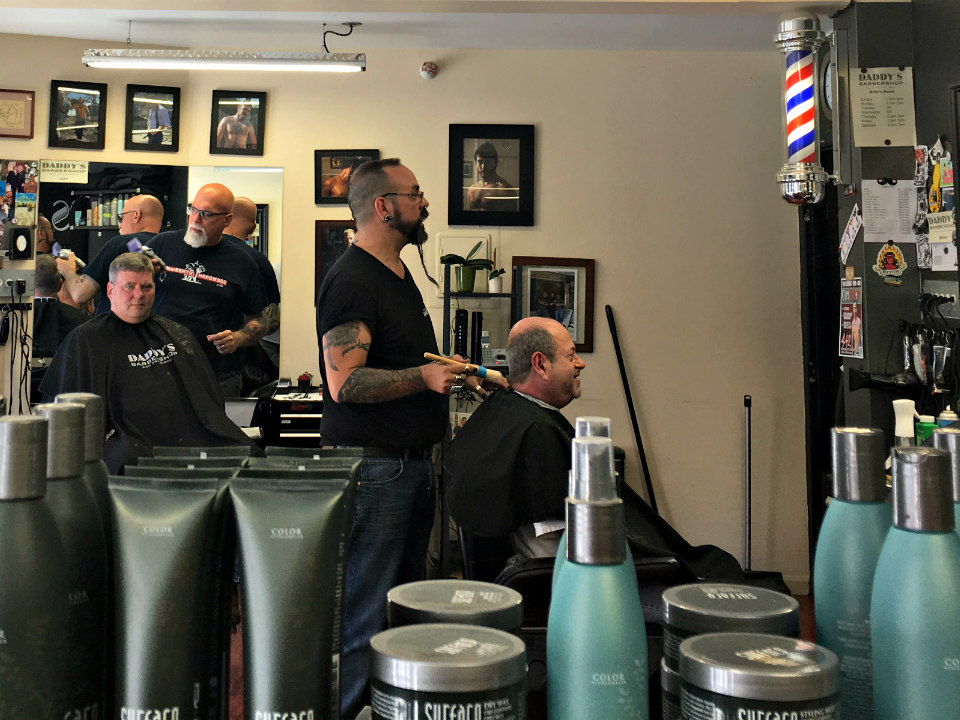
It all started when Lasater, who is originally from Houston and came to San Francisco by way of Los Angeles, decided to leave his job with the government of Singapore. Lasater worked at the Singaporean consulate in the city and took care of the Consul General and his family. “I drove a big Mercedes with State Department license plates,” said Lasater. “I used to take his kids to Sacred Heart over in Pacific Heights, and I would be picking the kids up and Robin Williams would be picking his kid up at the same time. It was an amazing time.”
However, Lasater didn’t see his role with the consulate lasting forever. “It was a really fancy job, but there was no future for me, even though I did it for many years. It was a dead-end job.” According to Daddy’s owner, he had a friend who been a hooker but had decided to go to barber school. “I watched what he did and how much money he was making. I thought, ‘I bet I’d be good at hair.’”
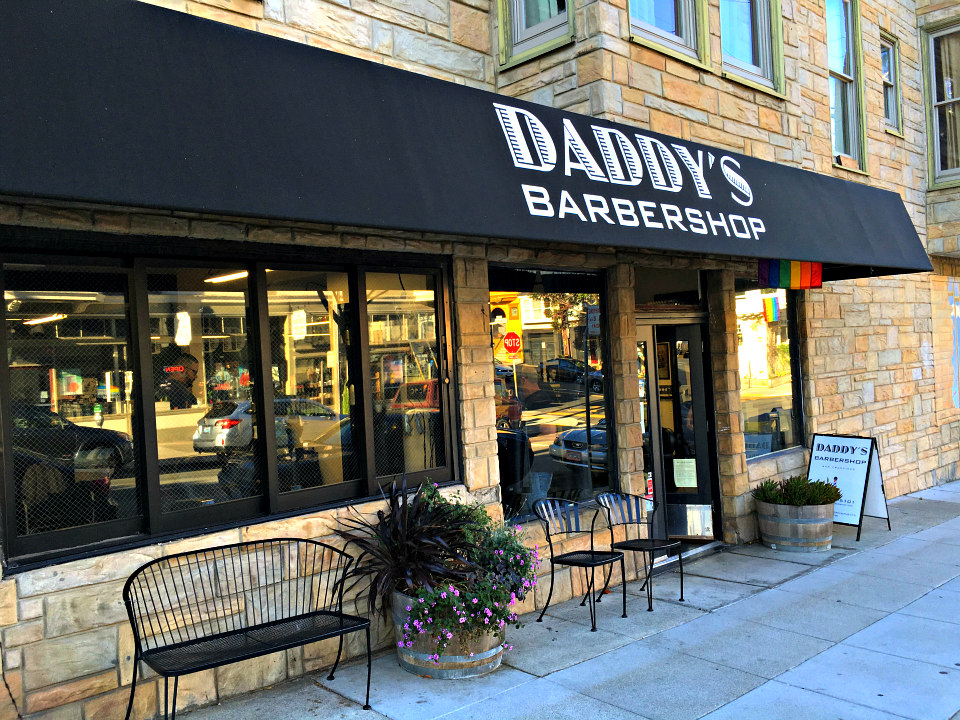
Lasater left the world of motorcades and secret service behind him and, at 46 years old, bravely stepped into the world of scissors and styling gels. “It was a second career for me,” said Lasater. He completed his schooling and for three years, Lasater worked at Joe’s Barbershop, which is now located on Market Street, but used to be located in the upper level of Daddy’s current shop.
Although Lasater made the move with Joe’s over to Market Street, a year later, he noticed that a ‘for lease’ sign was still in the window in Joe’s former 19th Street space. The owner of the building had completed a retrofit, but it was still sitting empty. “I didn’t ever in a million years think that two days later I’d be signing a lease for a barbershop,” said Lasater.
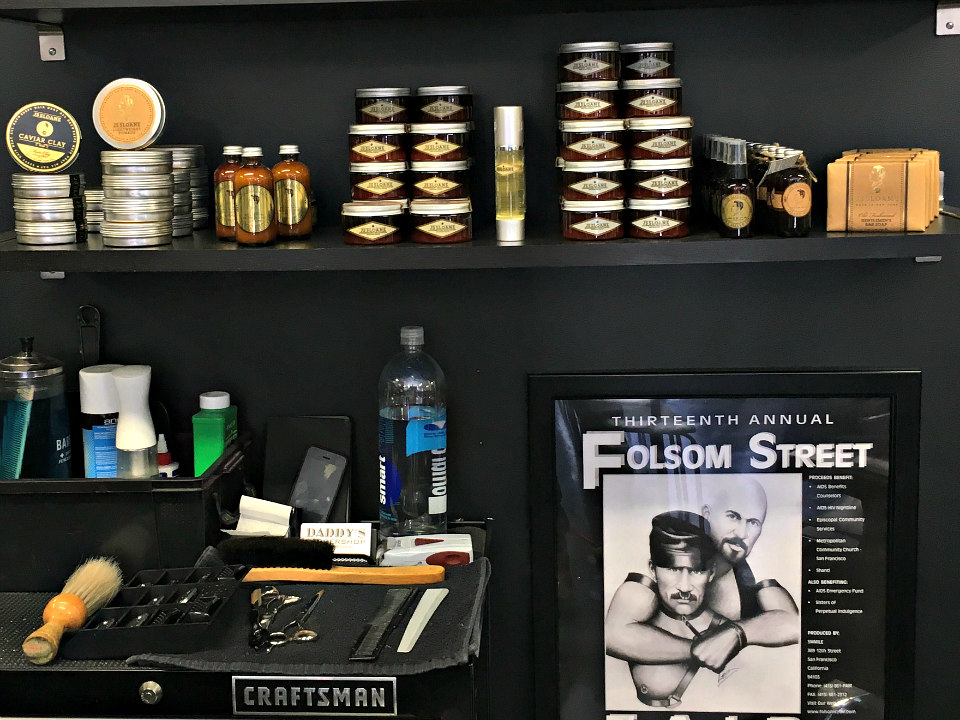
Lasater, along with two other barbers from Joe’s, moved back into the little three-chair shop on 19th Street to open a new salon. When it came to picking a name, Lasater ultimately went back to his days in hair school for inspiration. “I was the oldest one in the class and I was going to school with all of these 18-year-old little girls,” said Lasater. “By the end of the school year, all of the students, the staff, the owners, the teachers, everyone was calling me ‘daddy.’ And so, ‘daddy’ came into my head and Daddy’s was born.”
This might be surprising, especially if you thought that Daddy’s name had something to do with the BDSM community. You’re not completely wrong. “I’ve always been involved in the leather community,” said Lasater. He is on the Board of Directors of the Folsom Street Events, and this will be his ninth Folsom Street Fair.
For the fair’s 30th anniversary, organizers brought a film crew up from Los Angeles to shoot a documentary. One day in 2013, Lasater ran into the film’s director on Castro Street. The casual encounter led to an in-person interview in Daddy’s in which the director talked with Lasater about the economic impact of the fair on San Francisco’s small businesses. “A year later,” said Lasater, who didn't exactly know what would be in the film, “we were all invited to a sneak preview. I was sitting there and lo and behold, there’s my big head on the big screen at Daddy’s Barbershop.” According to Lasater, the documentary was premiered in London and has traveled around the world.
Daddy’s growing popularity with both locals and tourists, not to mention its success in the Mr. SF Leather competition, gave rise to the barbershop’s expansion into the adjacent 19th Street space, formerly occupied by a Tibetan shop, two years ago. The large space allows for nine chairs and Lasater currently has 17 barbers with him. The shop is open seven days a week, and recently began staying open between 9am and 9pm on Fridays and Saturdays. According to Lasater, on peak days, 150 clients might walk through the doors, especially with events like Dore Alley coming up.
Whereas in the past, 99 percent of Daddy’s patrons were gay men, Lasater said that that number has dipped to closer to 75 percent. “There are a lot of straight guys who come in here with their wives and they bring their children,” said Lasater. “I’ve not one time had any of them say anything negative about what’s on my walls or the fact that they come into my bathroom and there’s Folsom Street Fair nudity stuff.” According to Lasater, the neighborhood has changed since he moved here 25 years ago. “It’s definitely not the old gay Castro that I moved into. When I moved here, the sexual intensity was definitely high. But unfortunately, it was also a time when people started dying, before the meds came out.”
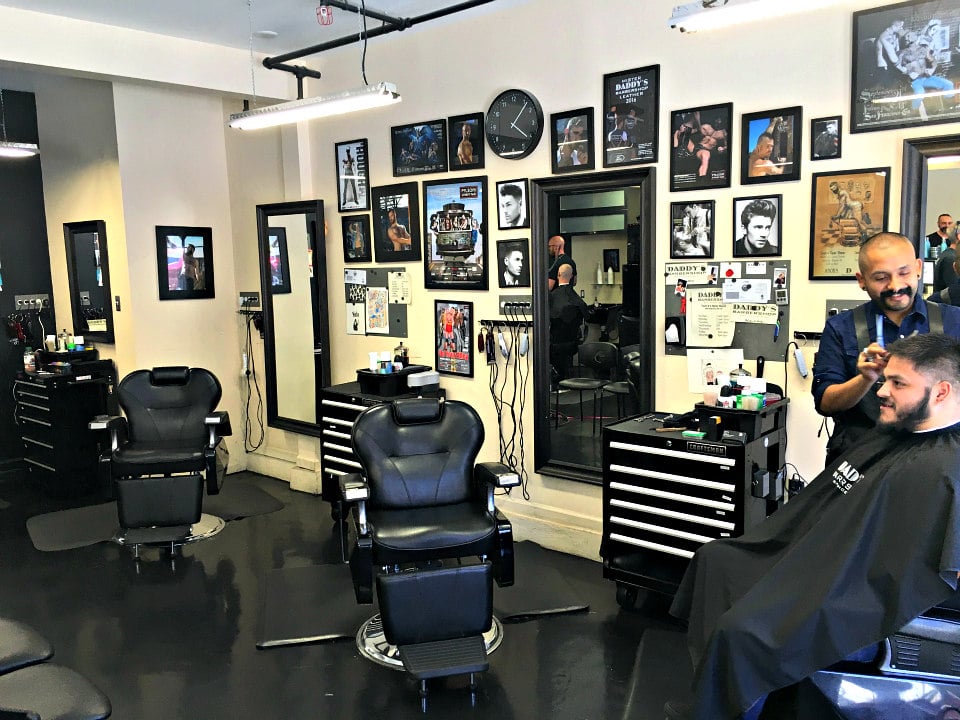
Lasater also commented on the changing nature of the Castro’s homeless population, or at least the more visible, aggressive demographic of the city’s homeless citizens. He compared walking down Castro Street to walking through a psychiatric ward. “It’s awful,” said Lasater. “The street was redone 18 months ago and the sidewalks are the most disgusting thing that I walk down everyday. It’s from the people who don’t care. There’s a lot of aggressive, crazy people out there that need to be in psych units, not on the corner of 18th and Castro.”
Whereas many patrons and tourists remark on the neighborhood’s apparent quality-of-life challenges, according to Lasater, most people that sit in his chair are talking to him about their own problems. “They sit in that chair for a haircut, and it’s free therapy. I am so many people’s therapists,” laughed Lasater. “To be in this business, you have to be able to listen and you have to be able to talk.”
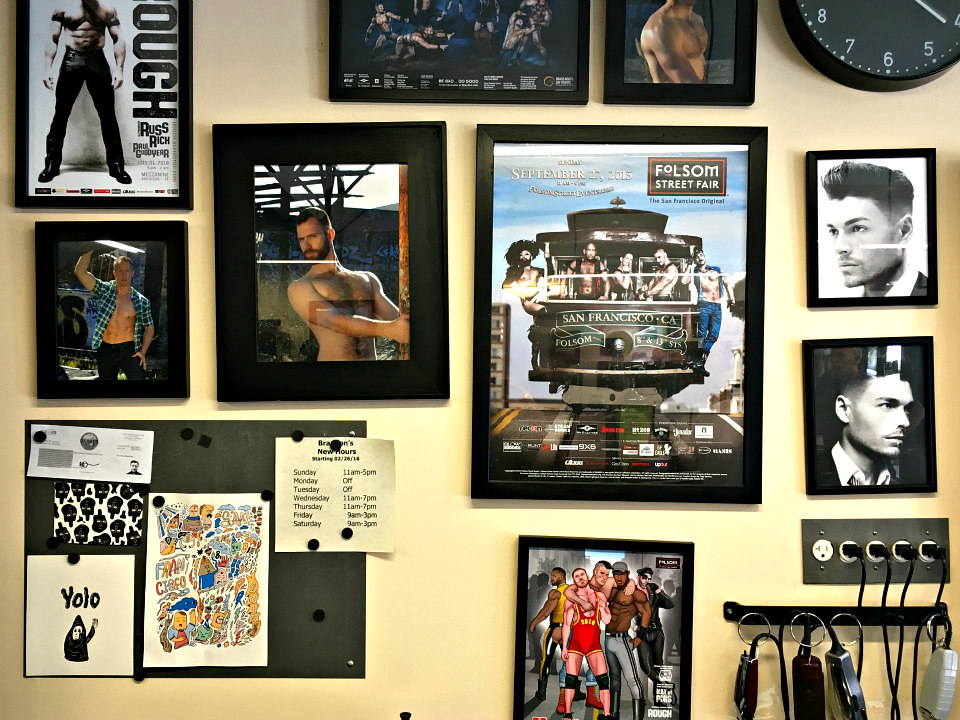
When asked what makes Daddy’s different from other Castro barbershops, Lasater talked about his shop’s atmosphere. “We’re really laid-back, we’re really easy-going, and it’s a place where people come, feel comfortable, and get a haircut too. It’s laid-back and it’s our positive energy—people like that.”
“Daddy’s is just in the beginning of its life,” said Lasater, who told us that he’s looking for a second location. “There’s more to come.”
See our previous Barbershop Talk stories on Louie's and Joe’s.